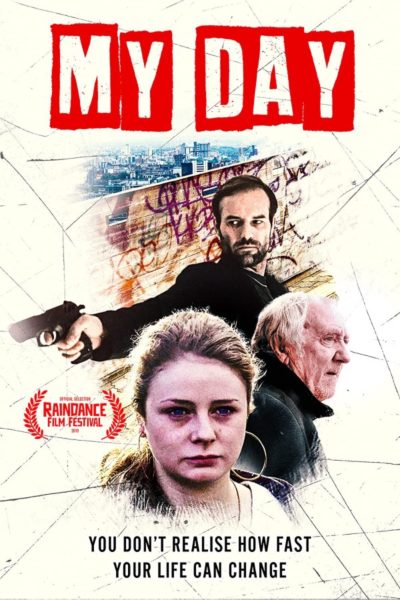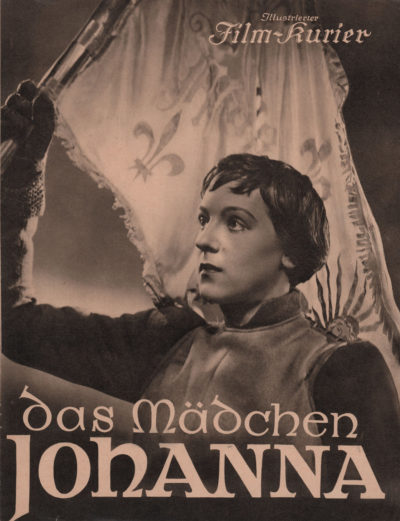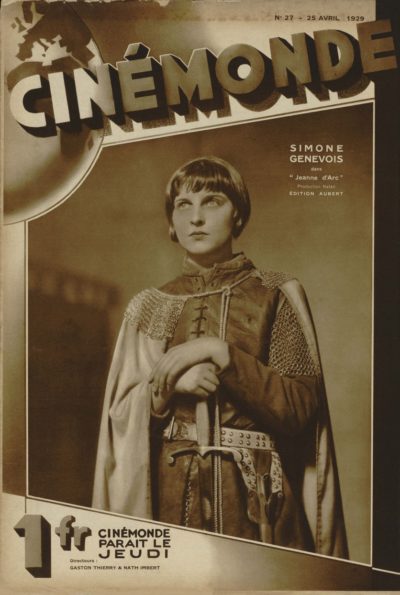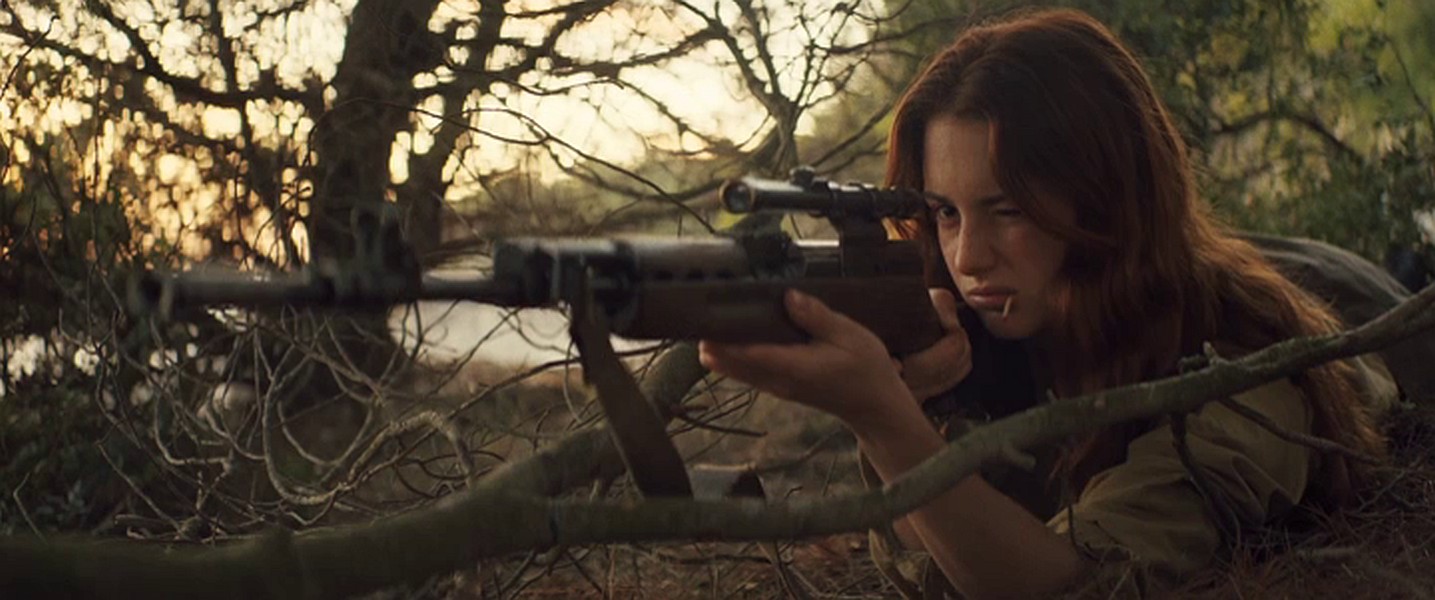★★★
“Pure cheese.”
 I’d been aware of this movie for some time, through its innovative crowd-funding approach, which raised $3 million to cover the cost of production. After COVID hit, there were doubts it’d ever see the light of day, but here it is: the first “Swissploitation” film [If not quite the case, it’s certainly the first one with a seven-figure budget, as well as the first Swiss movie covered on this site] And it’s not bad: if you’re familiar with similarly crowd-funded spoof, Iron Sky, this is along similar lines of broad parody. It covers almost every genre of cult from kung-fu films through Starship Troopers to women-in-prison films, e.g. there’s an Asian prisoner sporting inmate number #701. It doesn’t all hit, yet safe to say, the more you’re a fan of B movies, the more you’ll get out of it.
I’d been aware of this movie for some time, through its innovative crowd-funding approach, which raised $3 million to cover the cost of production. After COVID hit, there were doubts it’d ever see the light of day, but here it is: the first “Swissploitation” film [If not quite the case, it’s certainly the first one with a seven-figure budget, as well as the first Swiss movie covered on this site] And it’s not bad: if you’re familiar with similarly crowd-funded spoof, Iron Sky, this is along similar lines of broad parody. It covers almost every genre of cult from kung-fu films through Starship Troopers to women-in-prison films, e.g. there’s an Asian prisoner sporting inmate number #701. It doesn’t all hit, yet safe to say, the more you’re a fan of B movies, the more you’ll get out of it.
The film takes place in s dystopian version of Switzerland, where the authoritarian government are the only ones allowed to produce cheese, under “very Swiss leader” President Meili (Van Dien, making the Troopers spoof propaganda film which opens proceedings, all the more amusing). They crack down harshly on black-market cheese dealers, and this includes shooting dead the boyfriend of Heidi (Lucy) in spectacularly gory fashion, blowing up her grandfather (Schofield) and imprisoning Heidi, under the tender care of warden Fraulein Rottweiler. The heroine eventually escapes, learns martial arts from two nuns and Helvetia, which I am guessing is the spirit of Switzerland. She then takes revenge, Gladiator style, on Meili’s second-in-command, Kommandant Knorr (Rüdlinger), and finally the big cheese himself.
There is a standard by which all nostalgic attempts at recreating grindhouse cinema are measured, and that is the near-perfection of Hobo With a Shotgun. I think the main area in which this falls short is the lead actress. While it’s almost unfair to compare anyone to Rutger Hauer, Lucy simply doesn’t make the same impression as the likes of the original #701, Meiko Kaji, Tura Satana, or even Dyanne Thorne. Although I cannot fault her effort, I was never fully convinced Heidi was the bad-ass necessary to the plot. However, the supporting cast are solid, led by Van Dien hamming it up to thoroughly entertaining effect.
It looks slick, with every cent squeezed out of the budget, and some startling bits of violence. Could have used more nudity, I’d say: the main source is Swiss performance artist Milo Moiré, who has quite the resume. I think I was hoping for it to be more outrageous. Operating entirely outside the confines of the studio system, it feels rather too safe. Yet I will admit to genuinely laughing out loud on occasion, and some of the sequences are fabulously deranged. For example, a prisoner is tortured with cheeseboarding – it’s like waterboarding, except with melted cheese – then finished off by being impaled through the head with a Toblerone, sorry, for trademark purposes, a generic, triangular bar of Swiss chocolate. Whether that concept has you appalled or intrigued, is likely a good guide as to whether or not you should watch this.
Dir: Johannes Hartmann, Sandro Klopfstein
Star: Alice Lucy, Max Rüdlinger, Casper Van Dien, David Schofield





 Sixteen-year-old Ally (Smith) is living her life very much on the fringes of society. Coming from a broken home, she is now homeless on the streets of London, relying on the dubious charity of questionable friends. Though Ally does have her limits as to what she’s prepared to do, she has no issue with occasional bits of work, delivering drugs for dodgy couple Carol and Gary. It’s this that gets her into trouble: a job goes wrong, after the customer tries to rape her, and Ally flees – without either the drugs or the money. Carol and Gary are bad enough. Yet even they live in mortal fear of their boss, Eastern European gangster Ilyas (Adomaitis). He wants his merch back – and Ally, as interest, for sale to his sex trafficking friends.
Sixteen-year-old Ally (Smith) is living her life very much on the fringes of society. Coming from a broken home, she is now homeless on the streets of London, relying on the dubious charity of questionable friends. Though Ally does have her limits as to what she’s prepared to do, she has no issue with occasional bits of work, delivering drugs for dodgy couple Carol and Gary. It’s this that gets her into trouble: a job goes wrong, after the customer tries to rape her, and Ally flees – without either the drugs or the money. Carol and Gary are bad enough. Yet even they live in mortal fear of their boss, Eastern European gangster Ilyas (Adomaitis). He wants his merch back – and Ally, as interest, for sale to his sex trafficking friends. It’s basically impossible to separate this from the time and place in which it was made: that being Nazi Germany, just a few years before the outbreak of World War II. The portrayal of, not only Johanna/Joan of Arc, but the rest of the participants, has to be read in this light. It certainly explains why neither the English nor the French sides exactly come over as covered in glory. From the former camp, we have Lord Talbot, who is cruel to an almost cartoonish degree. On the latter we have King Charles VII (Gründgens), who is cynical to a fault, and has no qualms at all about using Joan when convenient, then discarding her when she isn’t.
It’s basically impossible to separate this from the time and place in which it was made: that being Nazi Germany, just a few years before the outbreak of World War II. The portrayal of, not only Johanna/Joan of Arc, but the rest of the participants, has to be read in this light. It certainly explains why neither the English nor the French sides exactly come over as covered in glory. From the former camp, we have Lord Talbot, who is cruel to an almost cartoonish degree. On the latter we have King Charles VII (Gründgens), who is cynical to a fault, and has no qualms at all about using Joan when convenient, then discarding her when she isn’t. ★★★★
★★★★ I generally make it a rule not to review foreign movies without subtitles, simply because it’s difficult to judge them reasonably if you can’t understand them. I made an exception for this 1929 French film for a couple of reasons. Firstly, it’s silent, so comprehension is limited only to the intertitles: I can read the language better than I can understand it spoken. Also, it was approximately the eleven millionth version of the Joan of Arc story I’d seen in the past month: I think I had a pretty good handle on the plot by this point. Boy, am I glad I did, because it’s the best silent film I’ve seen, albeit in my quite limited experience of them.
I generally make it a rule not to review foreign movies without subtitles, simply because it’s difficult to judge them reasonably if you can’t understand them. I made an exception for this 1929 French film for a couple of reasons. Firstly, it’s silent, so comprehension is limited only to the intertitles: I can read the language better than I can understand it spoken. Also, it was approximately the eleven millionth version of the Joan of Arc story I’d seen in the past month: I think I had a pretty good handle on the plot by this point. Boy, am I glad I did, because it’s the best silent film I’ve seen, albeit in my quite limited experience of them. History has largely forgotten this version, in favour of Carl Theodor Dreyer’s La Passion de Jeanne d’Arc. Both movies were produced concurrently, interest in the topic apparently having been spurred by the canonization of Joan at the start of the twenties, and the approaching 500th anniversary of the events in her life. However, delays during filming meant this adaptation was beaten to the cinema by Dreyer’s. It perhaps was also impacted commercially by the arrival of the new-fangled “talkies”, leaving silent movies like this looking old-fashioned. Half a century later, the film was eventually restored, and can be found on YouTube as well as
History has largely forgotten this version, in favour of Carl Theodor Dreyer’s La Passion de Jeanne d’Arc. Both movies were produced concurrently, interest in the topic apparently having been spurred by the canonization of Joan at the start of the twenties, and the approaching 500th anniversary of the events in her life. However, delays during filming meant this adaptation was beaten to the cinema by Dreyer’s. It perhaps was also impacted commercially by the arrival of the new-fangled “talkies”, leaving silent movies like this looking old-fashioned. Half a century later, the film was eventually restored, and can be found on YouTube as well as  Then there’s the burning at the stake, another scene which came uncomfortably close to historical accuracy for Genevois. “The moment the wood caught fire I yelled ‘It burns!’ [The director] Marco was so sure I was afraid, that he did nothing at all. All of a sudden the cameraman, Gaston Brun, shouted ‘She’s burning!’ and everyone ran towards me, because I was tied up and couldn’t budge. I was very frightened.” Even putting that aside, there’s no denying the emotional wallop it packs, particularly in the extended shot of Joan walking towards her death: Simone’s face, again, sells this in a way which left me genuinely distraught. This doesn’t happen often, and never before while watching any silent movie.
Then there’s the burning at the stake, another scene which came uncomfortably close to historical accuracy for Genevois. “The moment the wood caught fire I yelled ‘It burns!’ [The director] Marco was so sure I was afraid, that he did nothing at all. All of a sudden the cameraman, Gaston Brun, shouted ‘She’s burning!’ and everyone ran towards me, because I was tied up and couldn’t budge. I was very frightened.” Even putting that aside, there’s no denying the emotional wallop it packs, particularly in the extended shot of Joan walking towards her death: Simone’s face, again, sells this in a way which left me genuinely distraught. This doesn’t happen often, and never before while watching any silent movie. I have always been intrigued by alternate histories. These are bits of speculative fiction, which are based on a “What if…?” premise. For example, what if Napoleon had won the Battle of Waterloo? Or what if John F. Kennedy’s assassination had failed? Creators speculate on the way the world might have changed, in ways big and small. I find such creations endlessly fascinating, giving me a strong suspicion that, at certain points, history teeters on a razor’s edge, where a seemingly insignificant event can have an impact far beyond its scale. Here, it’s a single person who changes the course of history. For what might have happened, had Joan of Arc turned up, not in medieval France, but in Russia, during the aftermath of the 1917 revolution?
I have always been intrigued by alternate histories. These are bits of speculative fiction, which are based on a “What if…?” premise. For example, what if Napoleon had won the Battle of Waterloo? Or what if John F. Kennedy’s assassination had failed? Creators speculate on the way the world might have changed, in ways big and small. I find such creations endlessly fascinating, giving me a strong suspicion that, at certain points, history teeters on a razor’s edge, where a seemingly insignificant event can have an impact far beyond its scale. Here, it’s a single person who changes the course of history. For what might have happened, had Joan of Arc turned up, not in medieval France, but in Russia, during the aftermath of the 1917 revolution? This feel like it could easily have come out of the nineties, with the distinct whiff of a throwback to the golden age of Hong Kong “girls with guns” movies. That is, of course, not a
This feel like it could easily have come out of the nineties, with the distinct whiff of a throwback to the golden age of Hong Kong “girls with guns” movies. That is, of course, not a  I was pleasantly surprised when this random kung-fu film found Tubi (under the Silver Fox title) turned out to be by the creator of
I was pleasantly surprised when this random kung-fu film found Tubi (under the Silver Fox title) turned out to be by the creator of  Cathy East Dubowski is a professional writer, who apparently specializes in both YA and grown-up movie novelizations. This is apparently her best-known one (and my only exposure to her work). To her credit, she attempted a fresher approach here than simply re-telling the screenplay in third person. The movie used the frame device of the couple’s visits to a marriage counselor. Here, the author begins the book with the counselor’s notes and transcripts from his initial sessions with the Smiths, both together and separately; the main body of the story is their alternating journal posts which the counselor asked them to write, without necessarily showing the text to anyone else. IMO, this works well; we get inside both their heads, and understand them and their feelings. (One reviewer complained that the technique makes for “repetition,” but I didn’t find this to be a problem. While they’re often describing the same events, their different perceptions of them are very revealing, and as such anything but boring.)
Dubowski follows the movie fairly well (I could spot some minor differences, but though my memory of the film isn’t as sharp now as it was right after watching it seven years ago, I could also recall a good many scenes and lines of dialogue). The main difference is that the bad language in the book is much worse than in the original. There, I don’t recall it as very noticeable (and I would have picked up on that sort of thing), though the PG-13 rating is in part for “brief strong language.” Here, it’s not brief, and there’s a lot of it, including the f-word and religious profanity; I found most of this gratuitous. (Otherwise, the content issues aren’t problematical; there’s implied –actually, stated– sex, some of it premarital, but nothing explicit, and while the violence level is through the roof, it’s not really gory and is so over-the-top it’s hard to take seriously.
The same could be said for both the movie and the book in general.) A lot of plot points aren’t really credible; it’s difficult to go into detail without spoilers, but I didn’t think any of the decisions by the couple’s superiors were believable, Benjamin Danz’s role didn’t logically make sense, and I couldn’t imagine any real-life assassins reacting to the situation of discovering another hitter targeting the same mark the way this pair did. Also, the carnage in the highway chase scene would have resulted in police attention long before it concluded; and I thought the ending was way too pat. The causes of the couple’s estrangement over the years also aren’t really brought out and explained.
Objectively, given all of these shortcomings, in terms of its literary worth the novel doesn’t deserve more than two stars. Three was a gift; but it’s one I’m subjectively willing to give, just because I honestly did like the book, to a degree. The reason I did is for the strength of its depiction of a couple who honestly do love each other, and who are willing to fight both external dangers and their own inner anger and misunderstandings, in order to hang on to and recapture the bond that drew them to each other in the first place. And it’s made clear that a big part of doing that is learning to be honest with each other, to be themselves without playing a role, to communicate and give your entire commitment to the relationship. That aspect of the book, even though the story is told with a significant leaven of humor, is in itself as serious as can be, and applies to all marriages, whether the partners both happen to be contract assassins or not. And despite their faults, I had the sense that both main characters were essentially decent human beings, whom I did care about and want to see succeed in their married life.
Author: Cathy East Dubowski
Publisher: Harper; available
Cathy East Dubowski is a professional writer, who apparently specializes in both YA and grown-up movie novelizations. This is apparently her best-known one (and my only exposure to her work). To her credit, she attempted a fresher approach here than simply re-telling the screenplay in third person. The movie used the frame device of the couple’s visits to a marriage counselor. Here, the author begins the book with the counselor’s notes and transcripts from his initial sessions with the Smiths, both together and separately; the main body of the story is their alternating journal posts which the counselor asked them to write, without necessarily showing the text to anyone else. IMO, this works well; we get inside both their heads, and understand them and their feelings. (One reviewer complained that the technique makes for “repetition,” but I didn’t find this to be a problem. While they’re often describing the same events, their different perceptions of them are very revealing, and as such anything but boring.)
Dubowski follows the movie fairly well (I could spot some minor differences, but though my memory of the film isn’t as sharp now as it was right after watching it seven years ago, I could also recall a good many scenes and lines of dialogue). The main difference is that the bad language in the book is much worse than in the original. There, I don’t recall it as very noticeable (and I would have picked up on that sort of thing), though the PG-13 rating is in part for “brief strong language.” Here, it’s not brief, and there’s a lot of it, including the f-word and religious profanity; I found most of this gratuitous. (Otherwise, the content issues aren’t problematical; there’s implied –actually, stated– sex, some of it premarital, but nothing explicit, and while the violence level is through the roof, it’s not really gory and is so over-the-top it’s hard to take seriously.
The same could be said for both the movie and the book in general.) A lot of plot points aren’t really credible; it’s difficult to go into detail without spoilers, but I didn’t think any of the decisions by the couple’s superiors were believable, Benjamin Danz’s role didn’t logically make sense, and I couldn’t imagine any real-life assassins reacting to the situation of discovering another hitter targeting the same mark the way this pair did. Also, the carnage in the highway chase scene would have resulted in police attention long before it concluded; and I thought the ending was way too pat. The causes of the couple’s estrangement over the years also aren’t really brought out and explained.
Objectively, given all of these shortcomings, in terms of its literary worth the novel doesn’t deserve more than two stars. Three was a gift; but it’s one I’m subjectively willing to give, just because I honestly did like the book, to a degree. The reason I did is for the strength of its depiction of a couple who honestly do love each other, and who are willing to fight both external dangers and their own inner anger and misunderstandings, in order to hang on to and recapture the bond that drew them to each other in the first place. And it’s made clear that a big part of doing that is learning to be honest with each other, to be themselves without playing a role, to communicate and give your entire commitment to the relationship. That aspect of the book, even though the story is told with a significant leaven of humor, is in itself as serious as can be, and applies to all marriages, whether the partners both happen to be contract assassins or not. And despite their faults, I had the sense that both main characters were essentially decent human beings, whom I did care about and want to see succeed in their married life.
Author: Cathy East Dubowski
Publisher: Harper; available  ★½
★½ To my surprise, when I begin researching this film, it appears actually to be based – at least, somewhat – in reality. I give you
To my surprise, when I begin researching this film, it appears actually to be based – at least, somewhat – in reality. I give you